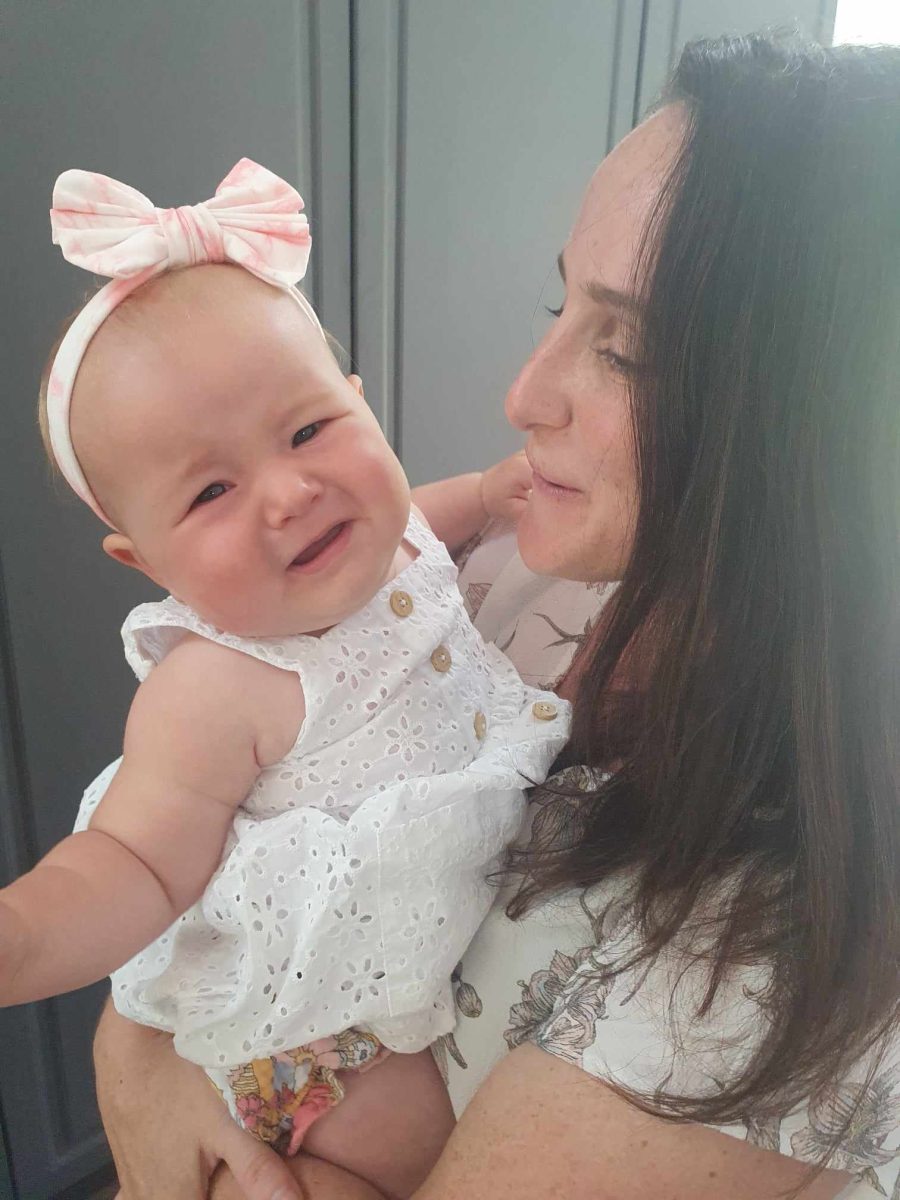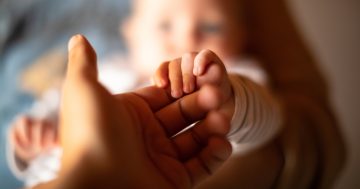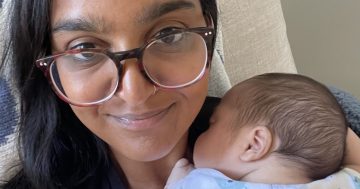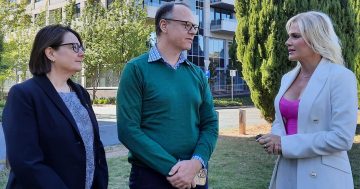
The decrepit, 33-year-old author practises her mothering skills on her niece. She might get the hang of it in a few more years. Photo: Zoe Cartwright.
My colleague Ian Bushnell expressed his concerns that women are ignoring their biological clocks in his recent column about the increase in Australia’s average maternal age from 28.4 years in 2011 to 29.7 in 2021.
But spare a thought for us women who dare to have their first child after they turn 30 or even – gasp – 40.
Most of us spent the decade between 14 and 24 being told that if we get pregnant, our lives are over, ruined forever.
Just a couple of years later, the comments about declining fertility, potential birth defects, and how tiring it must be to be an older mum began.
The message most women get is there are about three good years for having children, and if your life doesn’t put you in the financial or relational position to have kids when you’re aged 25 to 28, you’re stuffed.
This is assuming you want the little blighters at all – with all the affection in the world, regardless of how old you are when you have them, kids are a uniquely exhausting endeavour. If they don’t appeal to you, rock on.
I’ve got mates who have had kids in their early 20s, late 20s, 30s and 40s, and honestly, I haven’t seen mums’ ages make much difference to their kids’ lives at all.
But who cares what I think – what does the data say?
What about, I’m sure, you’re screaming, the biological clock my colleague is so concerned about?
Well, it turns out it’s more like an hourglass than the countdown ticker on a bomb.
Fertility does begin to decline in your 30s – but the idea your fertility falls off a cliff at a certain age is a bit of a myth.
One study published in 2004 that looked at 770 European women found that, with sex at least twice a week, 78 per cent of women aged 35 to 40 conceived within a year, compared with 84 per cent of women aged 20 to 34.
While risks to child health do increase with maternal age, again, with good medical care, the overall level of risk remains pretty low.
For example, a 25-year-old mum has a 1 in 1250 chance her baby will be born with Down Syndrome. The risk is three times higher at age 35 – at 1 in 400.
But apart from whether you can, should you have kids when you’re over 30, 35, or 40?
Like so many things in life, it depends – on your health, your income, your relationship stability.
But plenty of stats point to the benefits of having an older mum.
Research from the Max Planck Institute found that children born to older mothers did better in cognitive ability tests than those born to younger mothers.
A Danish study found that older maternal age was associated with fewer behavioural, social and emotional difficulties in children at ages seven and 11.
A 2019 study found many of the risks associated with older mums in the past were really risks for kids coming at the tail-end of large families; because today’s older mums are likely to be better-educated and more emotionally and financially stable, their kids actually benefit.
What about the mums themselves?
Some research indicates women who give birth in their 30s are more likely to enjoy a long life than those who finish having kids in their 20s. They’re also more likely to have a better verbal memory as they age.
Researchers from the London School of Economics and the University of Western Ontario examined data from about 8000 parents to measure happiness in first-time parents in the years before and after they had their first child.
Those 35 and up when they had their first child were stoked about it for the next 15 years, well into the terrible teens.
The happiness levels of parents aged 23 to 34 dropped back to their pre-child baseline within a couple of years, and those who had kids at 22 and under were less happy, full stop.
So what does all this mean?
It means individual women are probably best placed to decide if and when they want to have kids.
That having kids at any age comes with its own unique set of challenges.
That if anyone worries about the average age of mums creeping up, they’re probably better off campaigning for free tertiary education or affordable housing rather than guilting women into having kids before they’re emotionally or financially ready for them.
After all, they’re the ones left holding the baby.




















